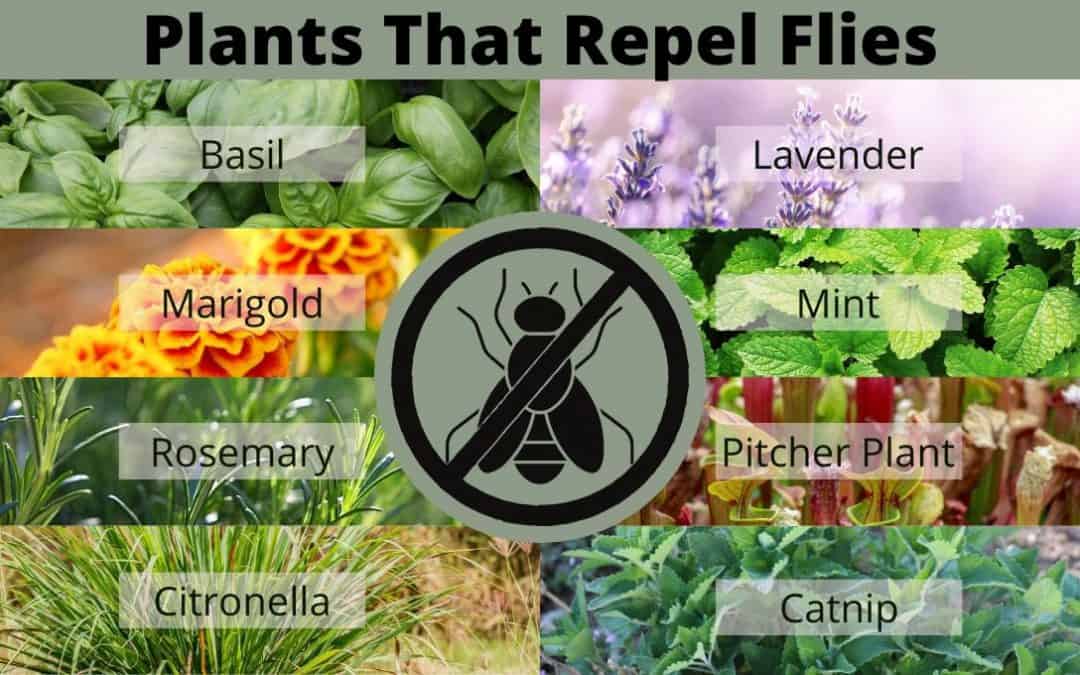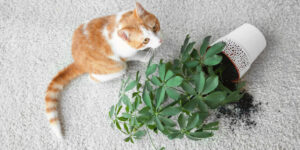
Plants That Repel Flies: A Comprehensive Guide
Flies can be a nuisance in gardens, homes, and outdoor spaces, spreading diseases and contaminating food. Fortunately, certain plants possess natural properties that repel these pests. This article delves into the various plants that can help keep flies at bay, their characteristics, and how to effectively use them in your environment.
Understanding Why Certain Plants Repel Flies
Plants that repel flies typically contain essential oils or compounds that emit strong scents. These scents are often unpleasant to flies but can be pleasant to humans. The effectiveness of these plants stems from their ability to mask the scents that attract flies or to release chemicals that deter them.
Key Compounds in Repellent Plants
- Essential Oils: Many plants produce essential oils that have insect-repelling properties. For instance, oils from plants like peppermint and lavender contain compounds that are effective against various fly species.
- Volatile Organic Compounds (VOCs): These are organic chemicals that can easily become vapors or gases. Plants like basil and rosemary emit VOCs that can disrupt the sensory receptors of flies.
- Aromatic Compounds: These compounds are responsible for the strong fragrances of certain herbs and flowers. Flies tend to avoid areas with strong scents, making these plants effective repellents.
List of Plants That Repel Flies
Here is a curated list of plants known for their fly-repelling properties:
| Plant Name | Description | Key Compounds |
|---|---|---|
| Lavender | A fragrant herb that produces purple flowers. | Linalool, camphor |
| Basil | A culinary herb with a strong aroma. | Eugenol, methyl chavicol |
| Mint | A refreshing herb that grows vigorously. | Menthol, menthone |
| Rosemary | An aromatic herb commonly used in cooking. | Rosmarinic acid, camphor |
| Sage | A culinary herb with fuzzy leaves and a strong scent. | Thujone, camphor |
| Chrysanthemum | Bright flowers that contain pyrethrum, a natural insecticide. | Pyrethrins |
| Marigold | Colorful flowers that emit a scent that repels various insects. | Limonene, pyrethrum |
| Lemon Balm | A member of the mint family with a lemony scent. | Citronella, geraniol |
| Nasturtium | Edible flowers that deter aphids and other pests. | Glucosinolates |
| Alliums | Includes garlic and onions, known for their strong smell. | Allicin |
| Petunia | Brightly colored flowers that repel aphids and other pests. | Various aromatic compounds |
| Pitcher Plant | A carnivorous plant that traps and digests insects. | N/A (mechanical trap) |
Detailed Overview of Each Plant
1. Lavender
Lavender is not only prized for its beautiful flowers and calming fragrance but also for its ability to repel flies. The essential oils in lavender contain linalool, which is known to deter various insects. Planting lavender near entrances or windows can help keep flies away.
2. Basil
Basil is a versatile herb used in many culinary dishes. Its strong aroma, primarily due to eugenol, makes it effective against flies. Keeping basil plants in the kitchen or near outdoor dining areas can help reduce fly activity.
3. Mint
Mint is known for its refreshing scent, which comes from menthol. This herb grows quickly and can be invasive if not contained. Its strong aroma can deter flies, making it a great addition to gardens or patios.
4. Rosemary
Rosemary is another culinary herb that also serves as a fly repellent. Its intense fragrance is due to rosmarinic acid and camphor, which are effective in keeping flies at bay. Rosemary can be grown in pots or directly in the garden.
5. Sage
Sage has a strong flavor and aroma, making it a popular herb in cooking. The compounds thujone and camphor in sage are effective in repelling flies. Burning dried sage leaves can also help keep flies away.
6. Chrysanthemum
Chrysanthemums are not only beautiful flowers but also contain pyrethrins, which are natural insecticides. Planting these flowers can help reduce fly populations in gardens.
7. Marigold
Marigolds are known for their vibrant colors and ability to deter various pests, including flies. The scent of marigolds is unpleasant to flies, making them a great companion plant in vegetable gardens.
8. Lemon Balm
Lemon balm has a pleasant lemony scent, which comes from citronella. This plant is effective in repelling flies and can be used in teas and culinary dishes.
9. Nasturtium
Nasturtiums are not only edible but also effective at repelling aphids and other pests. Their strong scent can deter flies, making them a beneficial addition to any garden.
10. Alliums
Alliums, including garlic and onions, are known for their strong smell. The compound allicin is responsible for their pungent aroma, which can repel flies and other insects.
11. Petunia
Petunias are colorful flowers that can help keep pests away. They emit various aromatic compounds that are effective in repelling flies and other garden pests.
12. Pitcher Plant
The pitcher plant is a unique carnivorous plant that traps insects in its modified leaves. While it does not repel flies in the traditional sense, it can help control their population by digesting them.
How to Use These Plants Effectively
To maximize the effectiveness of these plants in repelling flies, consider the following tips:
- Plant Strategically: Place fly-repelling plants near entry points, such as doors and windows, as well as in outdoor dining areas.
- Use in Containers: Growing these plants in pots allows for mobility. You can move them to areas where flies are most problematic.
- Combine Plants: Grouping multiple fly-repelling plants together can enhance their effectiveness due to the combined scents.
- Maintain Plant Health: Healthy plants are more effective at repelling flies. Ensure they receive adequate sunlight, water, and nutrients.
- Harvest and Use: Regularly harvesting leaves from herbs like basil and mint can release their essential oils into the air, enhancing their repellent properties.
Additional Methods for Fly Control
In addition to using plants, consider these complementary methods for controlling flies:
- Cleanliness: Keeping areas clean and free of food debris can significantly reduce fly attraction.
- Natural Traps: Use homemade traps, such as vinegar traps, to catch flies without chemicals.
- Essential Oils: Consider using essential oils derived from these plants in diffusers or sprays to enhance their repellent effects.
FAQ Section
- Do all plants that repel flies work equally well?
No, the effectiveness of each plant can vary based on the type of fly and environmental conditions. - Can I grow these plants indoors?
Yes, many of these plants can be grown indoors, provided they receive adequate light and care. - Are there any side effects to using these plants?
Generally, these plants are safe for humans and pets, but some individuals may have allergies to certain plants. - How often should I replace these plants?
Replace them as needed based on their health and growth. Annuals may need to be replanted each season. - Can I use essential oils from these plants instead?
Yes, essential oils can be effective in repelling flies and can be used in diffusers or homemade sprays. - Are there any plants that attract flies?
Yes, certain plants, especially those with overripe fruit or strong scents, can attract flies. - Can I combine fly-repelling plants with other pest control methods?
Yes, using a combination of plants, cleanliness, and traps can provide a more comprehensive pest control strategy. - How do I care for these plants?
Each plant has specific care needs, but generally, ensure they have adequate sunlight, water, and nutrients. - Are there any commercial products that contain these plants?
Yes, many insect repellents and pest control products contain extracts from these plants. - Can these plants repel other insects as well?
Yes, many of these plants can repel a variety of insects, including mosquitoes and gnats.
Conclusion
Incorporating plants that repel flies into your garden or home can be an effective and natural way to manage fly populations. By understanding the properties of these plants and how to use them effectively, you can create a more pleasant and pest-free environment. For further information on plant-based pest control, you can refer to resources like the National Center for Biotechnology Information which discusses the effectiveness of plant compounds against various pests.By utilizing the right plants and maintaining a clean environment, you can significantly reduce the presence of flies and enjoy your space more fully.


